11 Safe Flowers For Allergy Sufferers (And 8 To Avoid)
Achoo! When your nose is runny and you can't stop sneezing, it's hard to enjoy pretty flowers. Their colors and smells go to waste! But don't be sad. There are some flowers that won't bother your allergies.
These beauties produce little or no airborne pollen. By knowing the allergy-friendly blooms, you won't have to worry about allergy symptoms! Read on to learn more about the best and worst flowers for allergies
Choosing the right flowers for allergy sufferers
Below is a helpful table outlining the most allergenic flowers that should be avoided and the best hypoallergenic flowers for allergy sufferers.
|
Worst Flowers for Allergies |
Best Hypoallergenic Flowers |
|
|
Wanna know more? Keep reading
What Causes Flower Allergies?
Some flowers sprinkle pollen into the air. For some people, this pollen makes their allergies act up real bad. It's key to understand why flowers trigger allergy flare-ups.
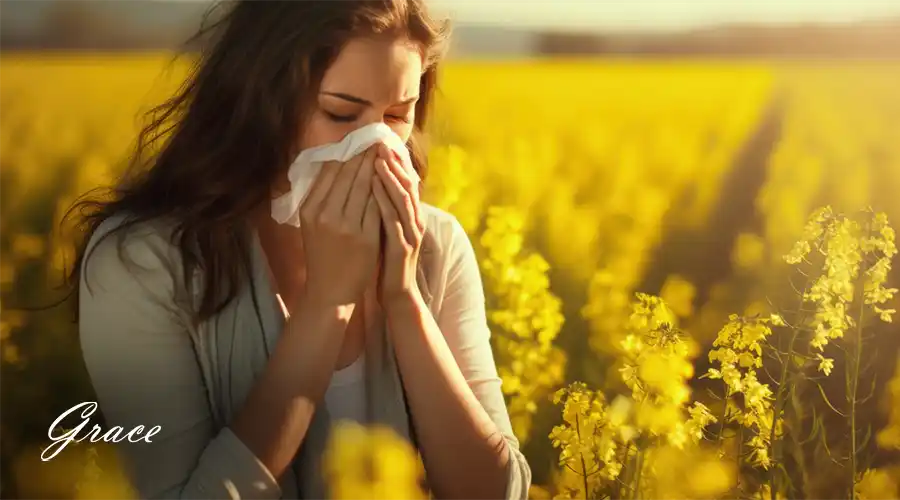
Pollen Is the Usual Culprit
Pollen is the biggest cause of flower allergies. Breathing in pollen can lead to allergic rhinitis, more commonly known as hay fever.
Hay fever symptoms from inhaling pollen include:
- Itchy, watery eyes
- Itchy ears and throat
- Runny, congested nose
- Sneezing
Though trees and grasses are worse hay fever offenders than flowers, pollen from certain blooms can still spark allergy issues.
Other Causes: Sap and Hairs
Aside from pollen, flower sap and fine hairs on leaves/stems also may irritate skin and cause allergic contact dermatitis in sensitive people.
Worst Flowers For Allergy Sufferers
While no flower inherently causes allergies, some have higher pollen counts or more irritating particles that provoke reactions in allergy sufferers. Here are the top flowers to avoid if you have allergies.
- Lilies: Gorgeous lilies are unfortunately packed with allergenic pollen. From mini calla lilies to large oriental lilies, all lily varieties can cause severe allergic reactions in some people when inhaled or touched.
- Baby’s Breath: Filler flower baby’s breath shows up frequently in DIY bouquets. But it's innocent appearance hides the fact that it causes serious allergic reactions in many people.
- Chamomile: Petite, daisy-like chamomile blooms are ragweed relatives and not a smart choice for allergy sufferers. Their cheerful faces hide allergy woes.
- Sunflowers: It’s hard not to smile at cheerful sunflowers, but their large pollen-covered centers spell disaster for allergy sufferers. Avoid sunflowers if allergies are a concern.
- Other Risky Blooms: Steer clear of asters, chrysanthemums, daisies, and dahlias too. Their copious amounts of fine pollen easily become airborne, triggering allergies. Beyond cut flowers, allergenic trees, shrubs, grasses, and herbs like juniper, chamomile, amaranth, and chrysanthemums also provoke allergies when planted outdoors. Research any plant thoroughly before planting around your home to avoid worsening outdoor and indoor allergies.
Read more about: Flowers That Reduce Stress
Best Hypoallergenic Flowers For Allergy Sufferers
Luckily not all flowers irritate allergies. Many gorgeous blooms actually have low pollen counts or large, sticky pollen grains that don’t become problematic airborne allergens. These are hypoallergenic and perfect for allergy sufferers!
What Does Hypoallergenic Mean?
Hypoallergenic means something produces fewer allergic reactions. Hypoallergenic flowers have minimal allergy-provoking proteins and chemicals. Their pollen and particles don’t irritate noses, throats, eyes, and skin the way other floral varieties do.
Top Hypoallergenic Flowers
Here are the most popular hypoallergenic flowers for allergy sufferers:
- Hydrangeas: Fluffy hydrangeas bloom wonderfully all season, plus their sticky pollen doesn’t fly through the air. Strong winds can’t blow hydrangea pollen around to cause allergies.
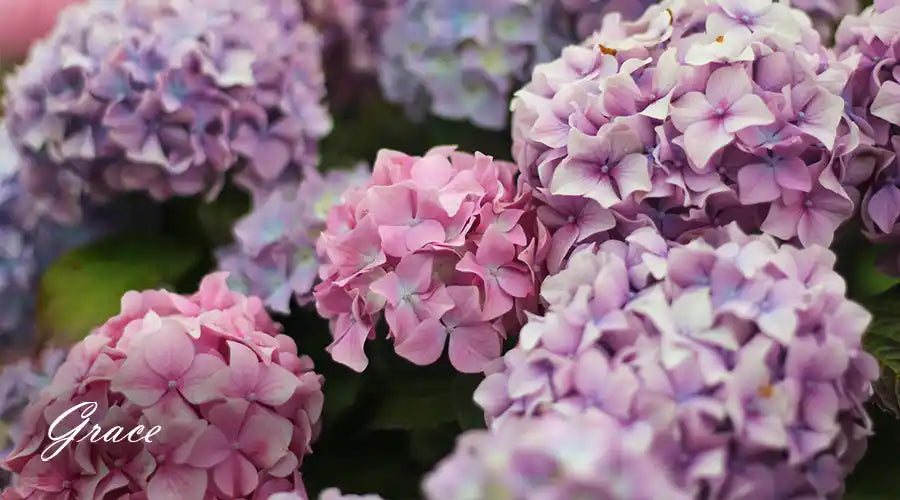
- Cacti: Cactus flowers open in gorgeous low pollen pink, orange and yellow hues. Their spikes contain pollen rather than releasing it openly.

- Roses: Classic roses carry hefty pollen granules far too large to be airborne allergens. Roses make hypoallergenic birthday, anniversary or wedding gifts. But for those extra sensitive to fragrances, their heavy perfume may still cause issues.
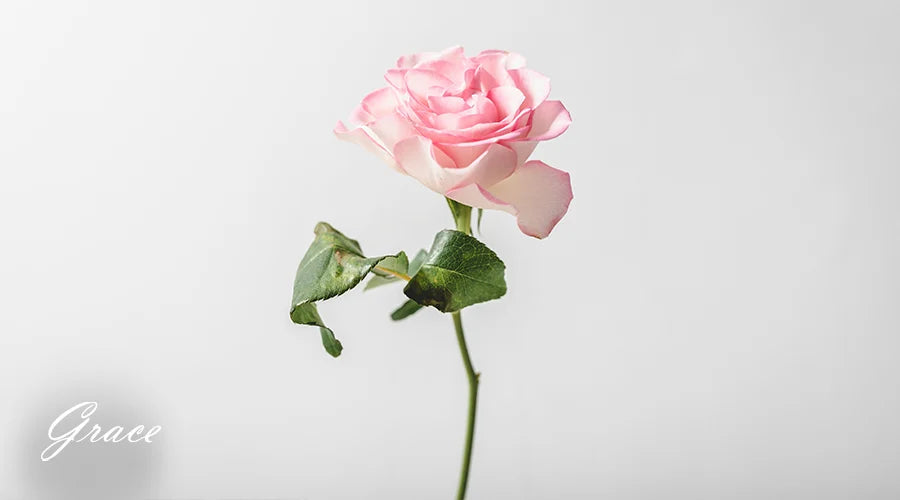
- Tulips: Tulips look incredible on their own or as bouquet focal flowers. With very low pollen counts, tulips make an excellent hypoallergenic choice. Just wear gloves when handling to avoid skin irritation.
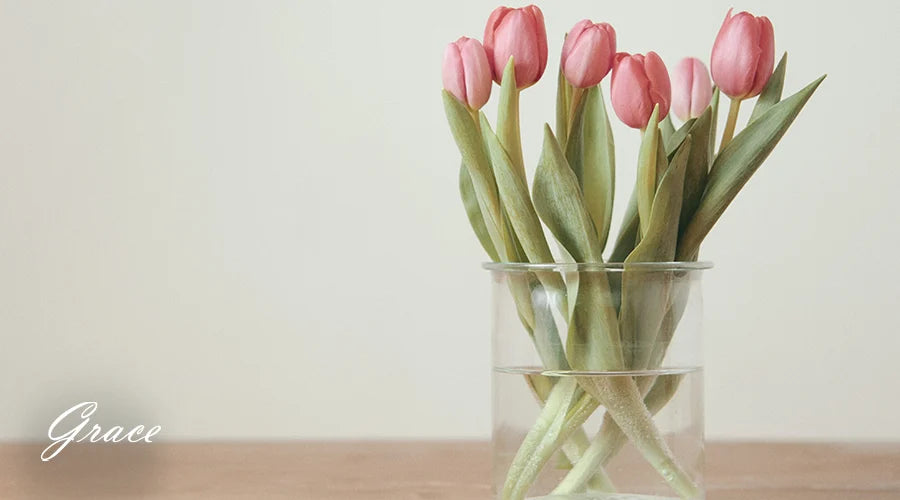
- Asiatic Lilies: Simply snip out the pollen covered stamen before gifting lilies and even these overtly allergenic flowers become hypoallergenic!
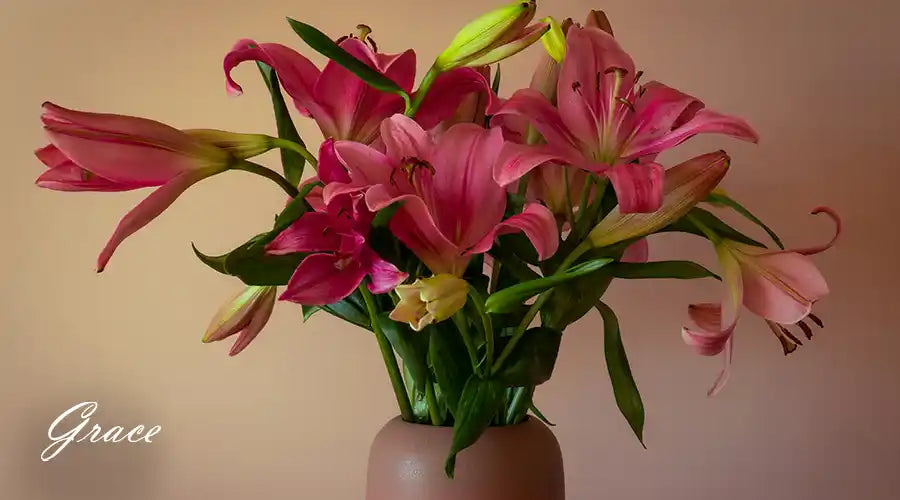
- Orchids: Exotic orchids represent luxury, and nearly all 25,000+ orchid species share the low allergenic pollen counts great for allergy sufferers. Their graceful pansy-like faces contain their pollen beautifully making orchids a top drawer hypoallergenic gift.
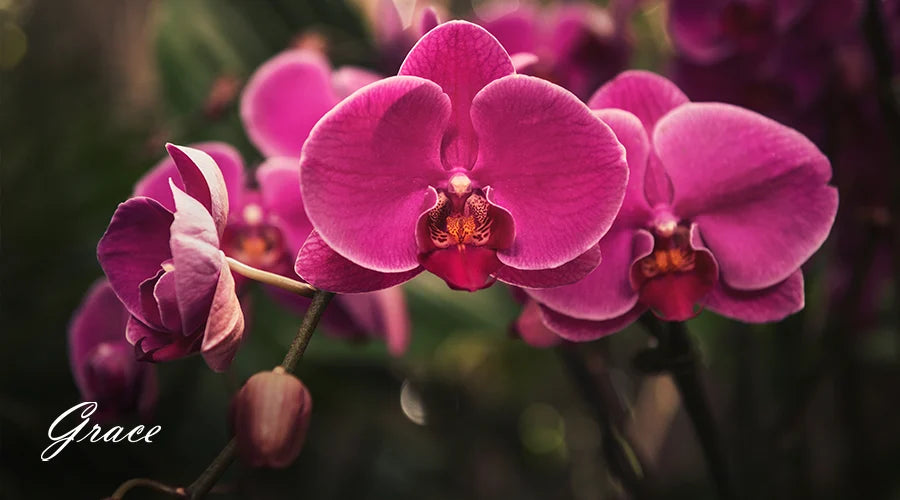
- Carnations: Ruffled carnation petals handicap airborne pollen while their lack of a central pollen-producing stigma also curbs allergies. Sweetly scented carnations make hypoallergenic anniversary or Mother’s Day presents.
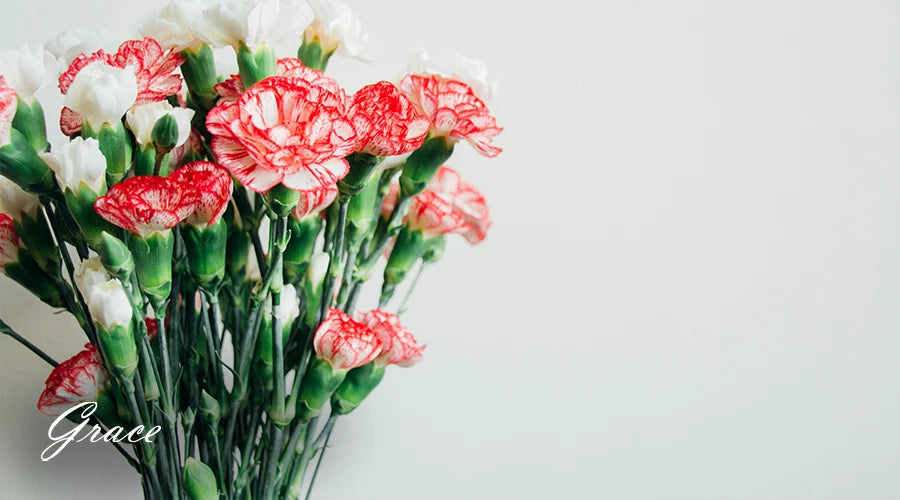
- Daffodils: Cheery spring daffodils flaunt low pollen counts keeping them a superb hypoallergenic choice. Give sunshine and smiles with vibrant yellow daffodil bouquets.
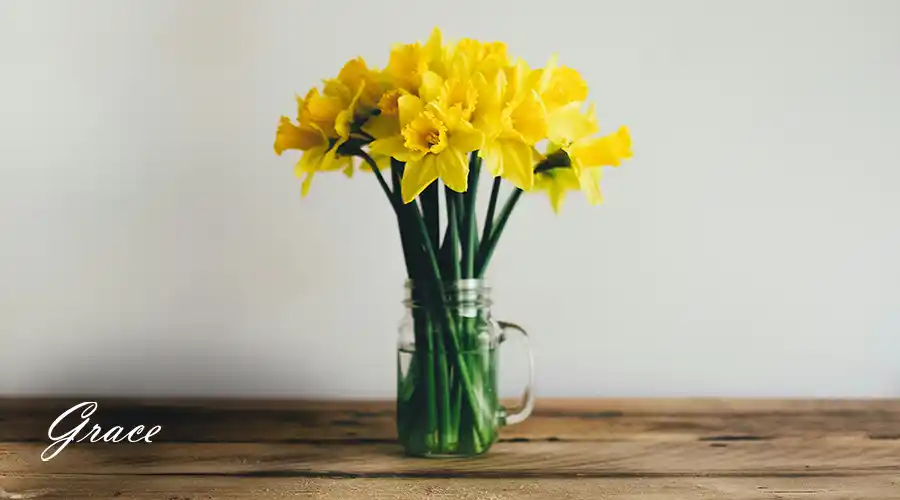
- Irises: Like carnations, the layered, folded petals of irises contain their pollen nicely. Pair classic iris blooms with daffodils or tulips for multiplied allergy-free enjoyment.

- Peonies: Fluffy, romantic peonies present very low allergy risks thanks to minimal pollen and dense petals that prevent airborne allergens. Give wedding bouquet quality with utterly irresistible peonies.
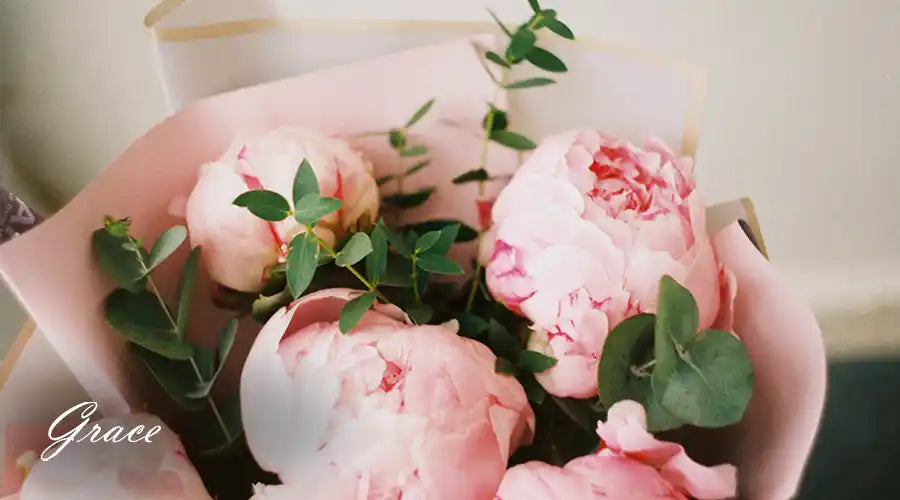
- Snapdragons: Unique snapdragons effectively trap pollen inside their cup-shaped blooms, abstaining from releasing their allergens. Whimsical snaps bring energy and delight to combinations with roses or orchids.
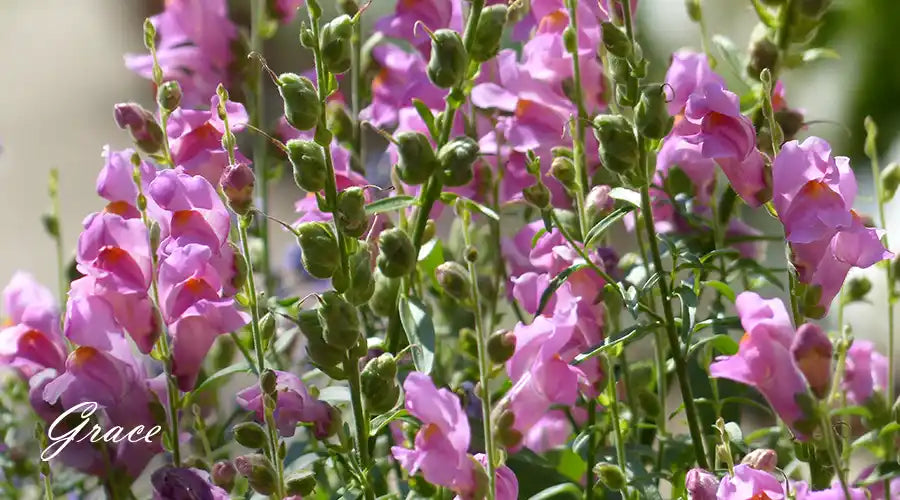
Wedding Flowers For Allergy Sufferers
Luckily, gorgeous hypoallergenic floral options exist so even allergy-prone brides, grooms and guests can enjoy beauty on the big day.
Beloved peonies make allergy-friendly bouquets, as their low pollen stays trapped inside. Hydrangeas’ sticky pollen also avoids airborne irritation, making them fantastic for lush, cloud-like centerpieces.
Orchids add tropical allure to arrangements with low pollen suits them to destination weddings. For spring, choose tulips, irises or daffodils – their layered structure keeps pollen safely inside, perfect for pastel bouquets.
Get creative with trendy succulents, air plants and cacti in lieu of traditional blooms, eliminating allergy risks. Silk replicas from companies like Something Borrowed Blooms provide completely allergy and maintenance free opulence.
Textural dried florals also bypass allergies. As bouquets or ceremony decor, they align with modern trends while offering eternal enjoyment repurposed in homes for years.
Tips & Tricks for Gifting Flowers to Allergy Sufferers
- If your loved one’s favorite flower remains risky allergy-wise, techniques like trimming allergenic anthers or choosing dried or preserved floral options help.
- For traditional blooms, simply snip pollen producing anthers off flowers like lilies before gifting bouquets. Removing visible pollen prevents allergic responses.
- Dried, pressed or preserved floral arrangements contain no fresh pollen. Give year-round enjoyment with potpourri sachets or framed flower collages to eliminate allergy variables while delighting recipients.
- Succulents, orchid plants and other house plants also let loved ones surround themselves with floral beauty minus allergenic pollen concerns.
Conclusion
Allergy sufferers can still enjoy gorgeous, mood-boosting blooms by selecting hypoallergenic flowers. Avoid overly allergenic flowers and plants identified earlier that contain copious airborne allergens leading to hay fever and contact dermatitis.
Stick with low pollen beauties described in detail here like roses, orchids, carnations, and hydrangeas to lift spirits without raising allergic responses. Use smart gifting techniques like flower organ trimming and dried floral gifts when needed.
Put allergies in their place and gift captivating, sentimental bouquets with confidence using guidelines shared here. Delight allergy sufferers with gorgeous hypoallergenic blooms expressing romance, friendship and celebration they’ll always remember.
Frequently Asked Questions About Flower Allergies
Can you be allergic to all flowers?
No, allergy sufferers are not necessarily allergic to all flowers or even most flowers.
Can you be allergic to flowers in the house?
Yes, you can be allergic to indoor flowers. Any bloom that releases pollen inside can trigger allergy symptoms even if you don't touch the actual flowers. Make sure to select hypoallergenic, low pollen options for indoor displays.
What flowers commonly cause allergies?
Lilies, sunflowers, daisies, asters and chrysanthemums frequently cause allergic reactions due to high pollen levels. Baby's breath, chamomile and dahlia also tend to provoke allergies as well.
Do dried or fake flowers cause allergies?
Generally no. Without fresh pollen, dried and artificial flowers pose little allergy risk. But some extremely sensitive sufferers may still react to microscopic particles or flower scents.
Are some flowers worse for allergies than others?
Definitely. Flowers with heavy pollen loads like lilies and daisies represent high allergy risks. Hypoallergenic flowers with sticky, heavy pollen like roses and orchids cause far fewer allergic reactions.







Leave a comment